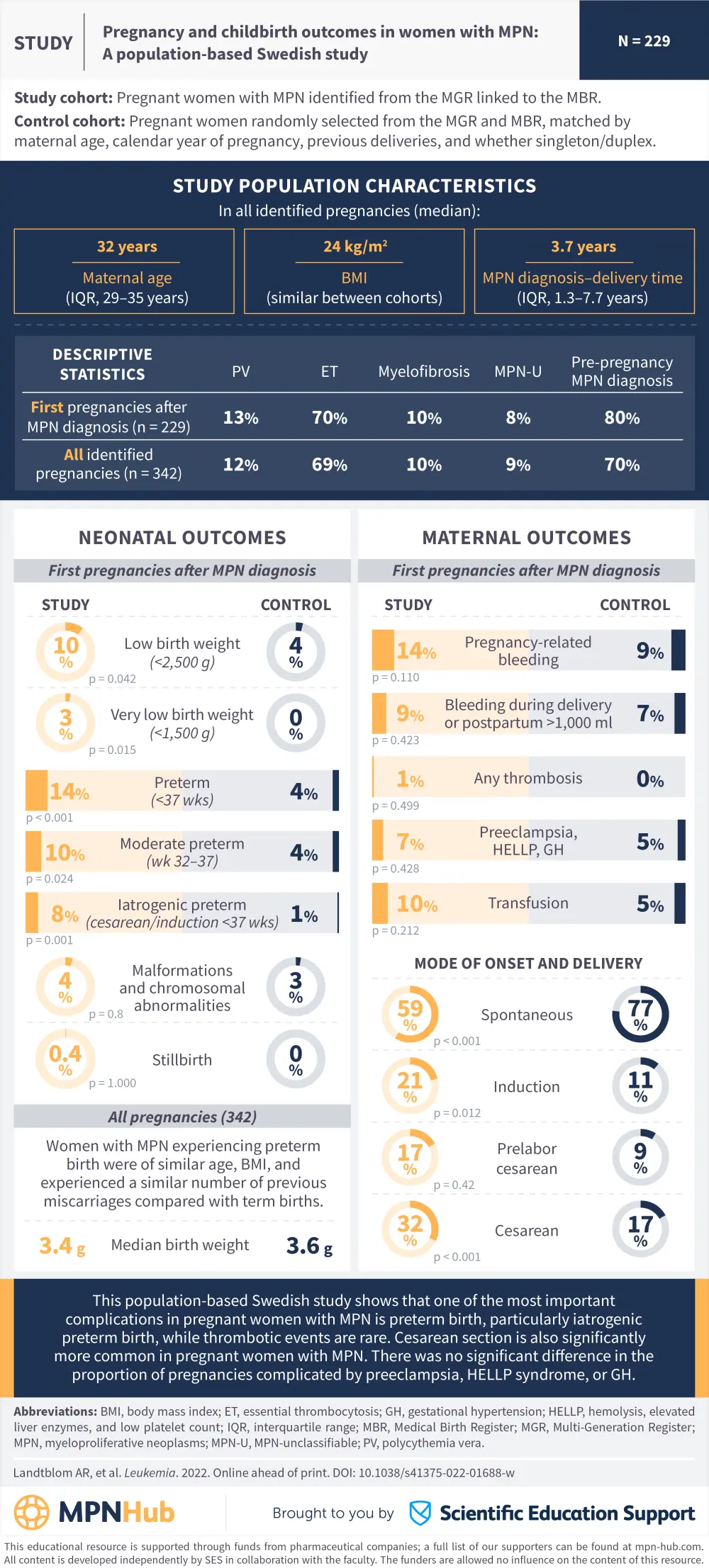All content on this site is intended for healthcare professionals only. By acknowledging this message and accessing the information on this website you are confirming that you are a Healthcare Professional. If you are a patient or carer, please visit the MPN Advocates Network.
The mpn Hub website uses a third-party service provided by Google that dynamically translates web content. Translations are machine generated, so may not be an exact or complete translation, and the mpn Hub cannot guarantee the accuracy of translated content. The mpn and its employees will not be liable for any direct, indirect, or consequential damages (even if foreseeable) resulting from use of the Google Translate feature. For further support with Google Translate, visit Google Translate Help.
The MPN Hub is an independent medical education platform, sponsored by AOP Health, GSK, Sumitomo Pharma, and supported through educational grants from Bristol Myers Squibb and Incyte. Funders are allowed no direct influence on our content. The levels of sponsorship listed are reflective of the amount of funding given. View funders.
Now you can support HCPs in making informed decisions for their patients
Your contribution helps us continuously deliver expertly curated content to HCPs worldwide. You will also have the opportunity to make a content suggestion for consideration and receive updates on the impact contributions are making to our content.
Find out more
Create an account and access these new features:
Bookmark content to read later
Select your specific areas of interest
View MPN content recommended for you
Visual abstract | Neonatal and maternal outcomes in pregnant women with MPN: A population-based Swedish study
Among patients with newly diagnosed myeloproliferative neoplasms (MPN), 10–20% are of fertile age, and pregnancy in patients with MPN may pose fetal and maternal complications, such as maternal thrombosis, hemorrhage, and placental dysfunction.1
The live birth rates in pregnant women with polycythemia vera or essential thrombocytosis are reported to be 65% and 70%, respectively.1 Although prospective studies have reported a higher live birth rate in pregnant women with MPN, these studies have been limited by small patient numbers and further systematic studies are limited by the infrequent occurrence of pregnancies in such patients.1
Here, we present a visual abstract representing the key findings from a large population-based study of pregnant women with MPN in Sweden and the associated neonatal and maternal adverse events, which were published by Landtblom, et al.1 in Leukemia.

References
Please indicate your level of agreement with the following statements:
The content was clear and easy to understand
The content addressed the learning objectives
The content was relevant to my practice
I will change my clinical practice as a result of this content



